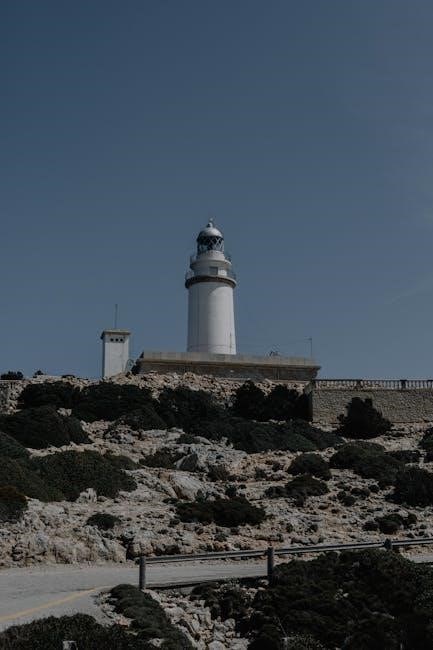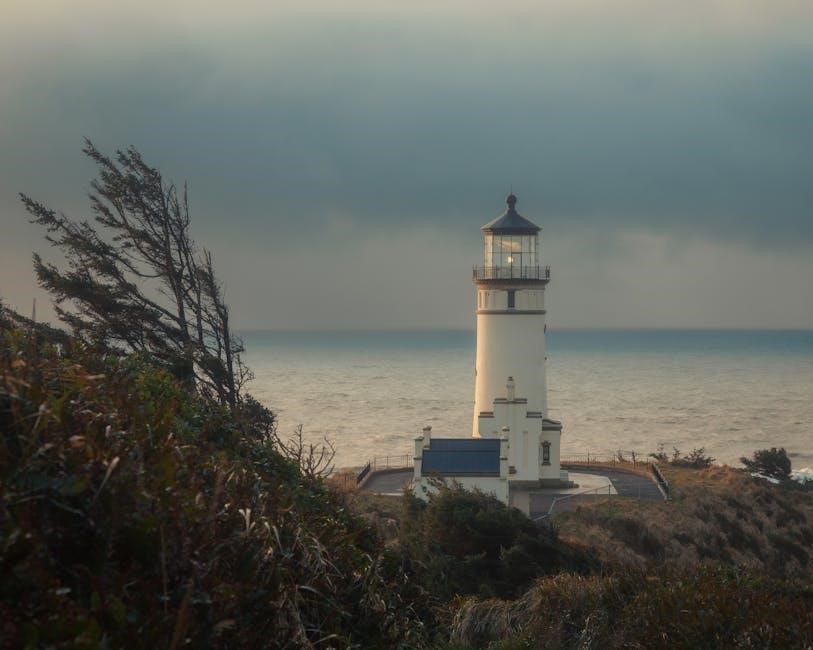Horizon: An American Saga ⏤ Chapter 1: Why the R Rating? A Parent’s Guide
Kevin Costner’s “Horizon: An American Saga ⏤ Chapter 1” received an R rating due to its content․ The Motion Picture Association (MPA) assigned this rating for violence, nudity, and sexuality․ Parents should be aware of these elements when considering if the film is appropriate for their children․
MPAA Rating Explained
The Motion Picture Association (MPA) rating system provides guidance to parents about the content of movies, helping them make informed decisions about what their children watch․ An R rating signifies that a film contains material that may be unsuitable for children under 17․ This could include intense violence, graphic nudity, explicit sexual content, or pervasive use of strong language․
In the case of “Horizon: An American Saga ⏤ Chapter 1,” the R rating was assigned due to violence, some nudity, and sexuality․ This means the film contains scenes that some parents may find objectionable for younger viewers․ It’s important to note that an R rating doesn’t necessarily mean a film is inappropriate for all teenagers, but it does suggest parents exercise caution and consider their child’s maturity level before allowing them to watch․
Parents can use resources like Kids-In-Mind and Common Sense Media to get more detailed information about the specific content that led to the R rating, helping them determine if the film aligns with their family’s values and standards․
Understanding the R Rating
An R rating indicates that a film may contain adult material unsuitable for children under 17․ “Horizon: An American Saga ⎯ Chapter 1” earned this rating due to violence, nudity, and sexuality․ Parental guidance is strongly advised before viewing․
Violence in “Horizon: An American Saga ⏤ Chapter 1”
“Horizon: An American Saga ⎯ Chapter 1” features moderate levels of violence that contributed significantly to its R rating․ The film depicts conflicts between people using various weapons, including guns, arrows, spears, and explosives․ These confrontations often lead to deaths and injuries, which may be disturbing for some viewers․ The intensity and frequency of these violent scenes are key factors in the MPA’s decision to rate the movie R․
Parents should be aware that the violence is not merely implied but often shown explicitly; Given the historical setting of the American West, the violence reflects the harsh realities of the time․ However, the film’s portrayal goes beyond historical accuracy, including graphic depictions that warrant caution․ Viewers sensitive to violence may find these scenes unsettling․
The inclusion of violence is a major consideration for parental guidance, particularly for younger or more sensitive teenagers․ The level of onscreen violence should be assessed to determine if the film is suitable for their viewing․
Nudity and Sexuality Content
The R rating for “Horizon: An American Saga ⎯ Chapter 1” is also influenced by its inclusion of some nudity and sexual content․ While the film’s depiction of such content is categorized as mild, its presence contributes to the restrictive rating․ Specific instances noted include a sex scene, implied sex scenes, and discussions relating to prostitution, as outlined by Kids-In-Mind․com․
These elements, though not pervasive, are significant enough to warrant parental awareness․ The nudity presented is partial and non-sexual․ However, the presence of a sex scene and implications of sexual activity raise concerns for younger viewers․ The discussions surrounding prostitution, though potentially historically relevant, also contribute to the film’s mature rating․
Parents should consider these factors when deciding if the movie is appropriate for their children․ The combination of mild nudity, sexual themes, and related discussions adds to the film’s adult nature and should be evaluated thoughtfully․
Profanity Level
The profanity level in “Horizon: An American Saga ⏤ Chapter 1,” while present, is considered mild․ The inclusion of some strong language contributes to the film’s R rating, but it is not a dominant element․ While specific instances of profanity are not extensively detailed in available parental guides, the overall assessment suggests that the language used is not excessive or pervasive throughout the movie․
This mild level of profanity may still be a concern for some parents, particularly those with younger or more sensitive children․ Even infrequent use of strong language can influence a film’s appropriateness for certain age groups․ Parents should consider their own family standards and values when evaluating the film’s language content․
While the violence, nudity, and sexual content play a more significant role in the R rating, the presence of profanity should not be overlooked․ It is a contributing factor that parents should be mindful of when making viewing decisions for their children․

Parental Guidance Details
To assist parents, resources like Kids-In-Mind․com and Common Sense Media offer detailed reviews․ These evaluations provide insights into the film’s content, helping parents make informed decisions about whether “Horizon: An American Saga ⏤ Chapter 1” is suitable for their children․
Kids-In-Mind․com Evaluation
Kids-In-Mind․com provides detailed evaluations of movies, focusing on elements that might concern parents․ Their review of “Horizon: An American Saga ⎯ Chapter 1” includes specific details about the content that led to its R rating․ This encompasses a sex scene, implied sex scenes, and discussions of prostitution, suggesting a mature theme․ Additionally, the evaluation highlights partial non-sexual nudity, which is a contributing factor․
The review also points out numerous scenes of conflict involving guns, arrows, spears, and explosives, leading to multiple deaths․ This level of violence contributes significantly to the R rating․ Parents can use this information to assess their children’s sensitivity to violence and sexual content․ The comprehensive nature of the Kids-In-Mind․com evaluation allows for a more informed decision regarding viewing appropriateness․ The site offers a breakdown that offers a comprehensive insight․
Common Sense Media Review
Common Sense Media offers a comprehensive review designed to help parents determine if “Horizon: An American Saga ⏤ Chapter 1” is suitable for their children․ Their review acknowledges the film’s R rating, highlighting concerns regarding violence, sexual content, and strong language․ The film is described as a meandering Western that may appeal to some viewers, despite its length and sometimes confusing quality․
Common Sense Media notes the film’s exploration of the American West during a pivotal period․ The review mentions that Costner’s Western includes storylines set in Montana, Wyoming, and Kansas․ These narratives unfold over 15 years․ While the film is watchable, it also exhibits a quality that sometimes feels more small-screen than big-screen․ The review assists parents in understanding the film’s content and context․ The review also takes into account the age of the children in the family, which is a critical factor․

Age Appropriateness
Given the R rating for violence, nudity, and sexuality, “Horizon: An American Saga ⏤ Chapter 1” is generally not suitable for children․ Parental discretion is strongly advised for teenagers under 17 due to mature themes․
Target Audience
The intended audience for “Horizon: An American Saga ⏤ Chapter 1” primarily consists of adults and mature teenagers․ Due to the film’s R rating, it is not appropriate for younger viewers․ The violence, nudity, and sexuality present in the movie are key factors determining its suitability for specific age groups․
Adults who appreciate Western epics and historical dramas may find the film appealing․ However, even within the adult demographic, individual preferences regarding graphic content should be considered․ Parents should also note that the film’s three-hour runtime might test the patience of some viewers․
For teenagers, parental guidance is crucial․ Those nearing adulthood and with a developed understanding of mature themes might be able to engage with the film’s narrative․ However, a candid discussion about the film’s content is essential to ensure they can process it responsibly․ Ultimately, the decision rests on parental judgment and the individual maturity level of the teenager․

Horizon Series Overview
“Horizon: An American Saga” is a multi-chapter epic Western exploring the American West’s expansion․ Directed by Kevin Costner, the series delves into the challenges and triumphs during the pre-and post-Civil War era․ It is a sprawling tale of settlement and survival․
Plot Summary and Themes
The “Horizon: An American Saga” series unfolds over fifteen eventful years, chronicling the complex tapestry of the American West․ Set against the backdrop of the pre-and post-Civil War era, the narrative explores the multifaceted journey of expansion and settlement․ This saga unveils both the triumphs and tribulations that defined this pivotal period in United States history, highlighting the diverse perspectives of those involved․
The series examines the lure of the Old West for families, friends, and foes alike․ It delves into the intricate relationships between settlers, Native Americans, and the land itself․ Themes of survival, conflict, and the human spirit’s resilience are central to the narrative․ The story also investigates the impact of the Civil War’s divisions on the westward expansion, adding another layer of complexity to the historical context․ Ultimately, “Horizon” aims to capture the essence of the American West’s transformation through interwoven storylines and compelling characters navigating a challenging environment․

Comparison with Other Westerns
When comparing “Horizon: An American Saga ⏤ Chapter 1” to other Westerns, several distinctions emerge․ Unlike some classic Westerns that often romanticize the era, “Horizon” appears to offer a more nuanced and gritty portrayal of westward expansion, aligning it more closely with revisionist Westerns․ Films like “Unforgiven” and “The Wild Bunch” are examples of revisionist Westerns that challenge traditional heroic narratives and delve into the darker aspects of the Old West․ From the available information, “Horizon” shares this inclination towards realism, depicting violence, nudity, and sexuality, which contributed to its R rating;
Furthermore, the film’s sprawling, multi-chapter format sets it apart from many self-contained Western films․ This ambitious scope allows for a more detailed exploration of various characters and storylines, potentially resembling the epic scale of “How the West Was Won․” However, it also risks pacing issues, as noted in some early reviews․ Whether “Horizon” ultimately stands alongside the genre’s masterpieces will depend on how effectively it utilizes its extended narrative to deliver a compelling and cohesive vision of the American West․

